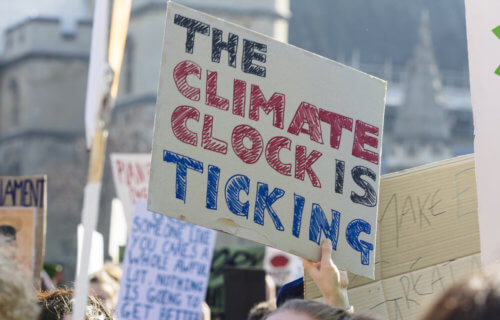WASHINGTON –– Climate change is undoubtedly a decisive topic with opinions typically split along party lines. However, a new Pew Research survey reveals that most Americans agree that the federal government is not paying enough attention the problem, despite bipartisan support for a range of initiatives aimed at mitigating the effects of climate change. The poll also shows that strong partisan divides still exist on other climate-related topics, such as the impact of human activity on climate change and how much it impacts local communities.
According to the survey of 10,957 U.S. adults, roughly two-thirds (65%) believe that the federal government is not doing enough to mitigate the effects of climate change. Most Democrats and more than half of Republicans also support a range of green policies. Such proposals including planting about a trillion trees, restricting power plant emissions, taxing corporations based on emissions, and requiring more fuel-efficient vehicles.
In addition, most Americans (79%) say that developing alternative sources of energy, such as wind and solar, should be a priority. In contrast, only 20% believe that oil, coal, and natural gas should be prioritized.
Climate change beliefs along party lines
Despite agreement on some issues, there are two issues that liberals and conservatives remain divided on. Many Democrats (72%) say that human activity is contributing a great deal to climate change, while a minority of Republicans agree (22%). Further, 83% of Democrats feel that climate change is impacting their own local community, compared to just 37% of Republicans.
In addition to divisions across party lines, the survey also reveals differences within parties. Conservative Republicans are much less likely than moderate or liberal Republicans to say that the government is doing too little to combat climate change, and that climate change is impacting their community. They’re also less likely to support green-focused policies.
Gender and geography
Gender seems to play a role on the right, as well. Republican women are more likely than their male counterparts to support environmentally-friendly policies. Similarly, younger people and women are more prone to the belief that the feds aren’t doing enough.
Opinions on climate also differ based on geography. Seven in 10 people who live within 25 miles of a coastline say that climate change affects their local community. That’s compared to 61% of people living 25 to 299 miles from the shore, and 57% of people who reside more than 300 miles away. Differences based on distance to the coast are more pronounced among Republicans than Democrats. Democrats are equally likely to say that climate issues impact their region either a great deal or somewhat regardless of their distance from a coastline.
As for education playing a factor in one’s opinion, researchers say this is only true for Democrats. More educated Democrats are more likely to say that human activity influences climate change. Among Republicans, very few feel the same way, and this does not differ based on education.
Overall, these data are actually promising for enacting climate-related policies moving forward. In particular, the results suggest that climate opinions among Democrats and Republicans mostly differ in regard to the causes of climate change and its community impact, which may be irrelevant to solving the problem. Ultimately, it may be more important for Americans to agree on which actions to take to solve the issue. And, indeed, most Americans do seem to agree on what actions should be taken in the future.
Like studies? Follow us on Facebook!
